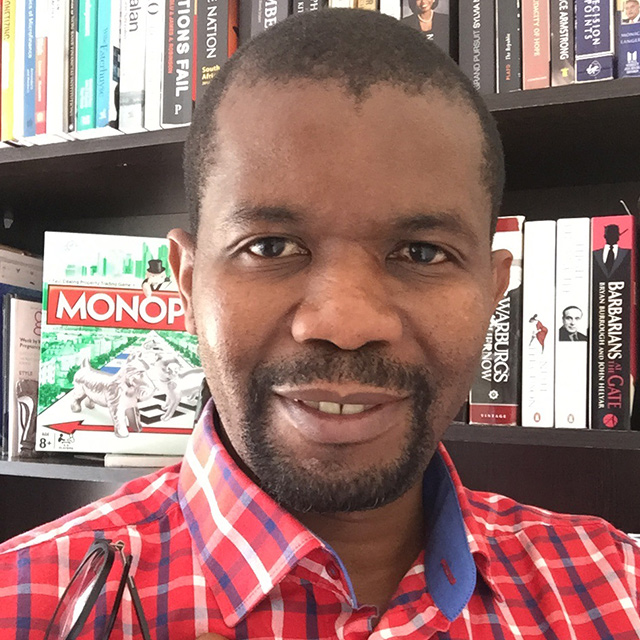
To begin to understand what a development economist does, start by imagining that you live in a particular village that is very close to your heart.
That is the advice given by former Matie, Dr Alfred Mthimkhulu, a senior researcher at Kulm Research (www.kulmresearch.com).
“However, while you wish you could stay in this village for the rest of your life, the reality is that life there is a very difficult experience,” he goes on to explain.
“Grown-ups struggle to put food on the table and, as a result, no one notices the scenic landscape. Your inner-self knows this dire state of life can be fixed. But how? You are not so sure.”
While it is possible to build a list of everything you think should be done—building schools, developing infrastructure, and constructing factories being a few examples—deciding on what should be done first, how much it will cost, and, most importantly, where the funds will come from are entirely different matters.
“How can the village attract the funds? What concessions must be made so that villagers and financiers are happy? Development economists wrestle with such questions,” the former Siemens Stiftung Research Fellowship recipient elucidates.
“We use a lot of data from the long past, present and from any part of the world to come up with policies that improve socioeconomic conditions of societies.”
With his specific focus being on how private sector-driven growth can be accelerated in the SADC region, Alfred recently led a research function at Good Governance Africa’s SADC Office.
In the past, he has also had the opportunity to consult with important public and socioenvironmental organisations across the continent—including for the Department of Trade and Industry as senior researcher at Benchmarking and Manufacturing Analysts.
“One of my early personal highlights was an impact evaluation of a World Bank and Dutch government-funded project in Rwanda. Rwanda is aggressive in pursuing growth and is delivering. I’ve had lots of lessons from that experience.”
Casting back to his time at Stellenbosch, he recalls an important event that occurred during his first day as a master’s student in 2007.
“The then director of the business school, Prof Eon Smit, in his welcome address spoke of some young man he had seen the previous afternoon. That young man was dragging a bag up the hill approaching the school entrance.
“That was me! He had mentioned this young man to highlight sacrifices that tend to come with graduate education. What a fitting welcome to one who had spent two nights in a bus from Harare.”
He later returned to do his PhD in 2012 and received a scholarship from Siemens Stiftung thanks to the partnerships SU has globally.
“I got to see the world including places I so wished I could visit as a kid, such as the Pyramid of the Sun in Mexico. I dined with some of the foremost scholars in my field. We pondered on our work high up on the Monserrate in Bogotá. I even took selfies with Nobel Laureate Muhammad Yunus!
“As I was wrapping up my PhD I got career advice from aunt Deirdre McCloskey in Athens, in full view of the valleys walked by Socrates and his men who are credited for birthing western philosophy. Such a wonderful intellectual journey I was led to walk by my mentors at SU. It was both an empowering and humbling experience.”
When Alfred first enrolled at the University in 2007, there was hyperinflation in his home country of Zimbabwe.
“One professional labour of love I’m busy with is in reviewing events leading to the so-called lost decade in Zimbabwe. Everyone knows the events, but the lens I use in retelling them is fascinating. Economic history is a critical part of development economics.
“We tend to treat the two as different fields. This labour of love doesn’t. Readers will love it. May I see it through.”
- By Steyn du Toit -